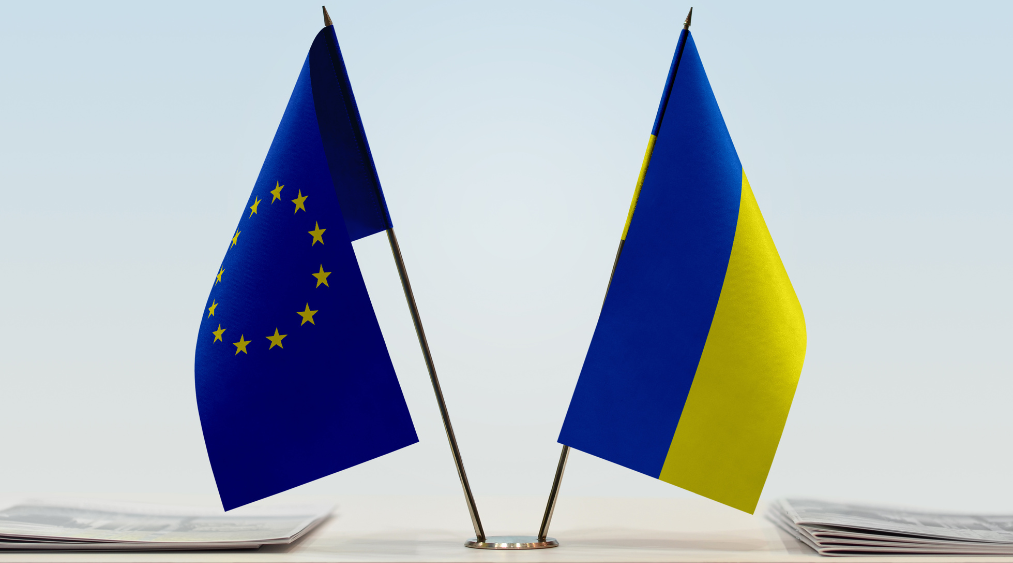Some people were surprised when the Hungarian government made a quick decision to support Ukraine’s candidate status for EU membership. They felt that Ukraine did not deserve to join because of the series of atrocities committed against Hungarians in Transcarpathia or because of President Zelensky’s role in the Hungarian election campaign, a role that he himself now seems to regret. Their bitterness and disappointment are understandable, but the Orbán government made the right decision from the “Hungarian point of view”. Its support for Ukraine’s EU accession tied to strict conditions that are in line with Hungarian interests could be even more pronounced. For several reasons.
First of all, because Ukraine’s accession to the EU is only possible if its borders are clarified by at least one permanent ceasefire agreement. Those who call for EU membership are in fact calling for a ceasefire and peace, not unconditional accession. As long as it is not clear over which territory Ukrainian sovereignty could be established, as long as Ukraine is a war zone, it will not become a member of the EU.
Several Western politicians are apparently working on Ukraine’s early accession. However, when Kyiv expresses its desire for an EU membership within two years, those leaders dressed in blue and yellow suddenly go silent and make the country’s EU membership conditional on EU treaty reforms and the abolition of unanimous decision-making. This pushes the deadline to never. If Hungary were to push for Ukraine’s EU accession, it would also expose hypocritical European politicians. How would those in Brussels explain their sudden cautious stance towards Kiev?
Many people in the West and the East are committed to keeping Hungarian-Ukrainian relations tense. Some want to weaken Central Europe, by dividing Europe’s new regional centre of power, others want to disrupt the European unity. In fact, by providing humanitarian aid, sheltering refugees and supporting the Ukrainian economy, Hungary is doing far more for its eastern neighbour than its constructed image in the world press would suggest. This is another argument in favour of supporting the EU accession, because Ukraine would no longer be a wedge issue in Central Europe, and Poland would realise that it was wrong to listen to the anti-Hungarian siren voices. Ukraine’s accession could once again become a common issue for the Warsaw-Budapest axis.
A hypothetical EU member Ukraine would also reshape the balance of power in European politics, which poses many risks for our country. But in return, there are also a lot of opportunities in such a transformation. Serbia, for example, which has become a close ally of our country in recent years, would also gain a realistic chance of EU membership. And the possible EU accession of Ukraine would reduce the potential of the United States of Europe concept. It is no coincidence that the British, who can hardly be accused of altruism, had been pushing for Turkey’s EU accession for decades, seeing it as the best obstacle to deeper integration.
It is a legitimate question whether Ukraine’s EU membership would be contrary to Hungarian national interests. We can easyly understand that Ukraine, which is currently fighting a patriotic war against Russia, has an interest in joining the European integration process that has guaranteed peace among its members for seventy-eight years, but would it be also good for Hungarians? Yes, there is a chance.
On the one hand, enlargement could only be realised as a sovereign Hungarian decision, based on the precise terms of the Accession Treaty. Supporting the accession in principle does not mean automatic acceptance of all conditions. Hungary has the right to veto any enlargement of the Community until the last minute. It is worth remembering that in the 1990s, Hungary’s accession to the EU was also made conditional on bilateral agreements with neighbouring countries on the protection of minorities, which would be easier to enforce on an EU member Ukraine than on a non-EU member. It is also worth remembering that a Hungarian EU Commissioner could continue EU accession negotiations with Ukraine until the summer of 2024.
On the other hand, Ukraine’s EU membership is also in our economic interest. Not primarily because of its workforce reserves, which help Poland for example, but to promote the vision set out in the Prime Minister’s state of the nation addresss this year, the “Debrecen-Nyíregyháza-Miskolc triangle” to be built on the model of the industrial zone in Western Hungary. The EU membership of the neighbouring countries and the openness of borders are important basis for the former, and the integration of the region is also an essential requirement for the latter. This is why Hungary, unlike the duel of Austria and the Netherlands, supports Romania’s accession to the Schengen Area. Ukraine’s integration is essential for the new Hungarian economic miracle. Although it is a Hungarian tradition to protect the borders of the European empire, now it is time to build one of its centres.
In a word like a hundred: Let’s surprise the Western hypocrites and our friends who have been tuned against us and let’s support Ukraine’s conditional accession to the EU, because it would bring peace, which would be beneficial from all points of view, and contribute to the economy of Eastern Hungary and the real protection of the Hungarian minority in Transcarpathia.
Ágoston Sámuel Mráz
Director of the Nézőpont Institute

